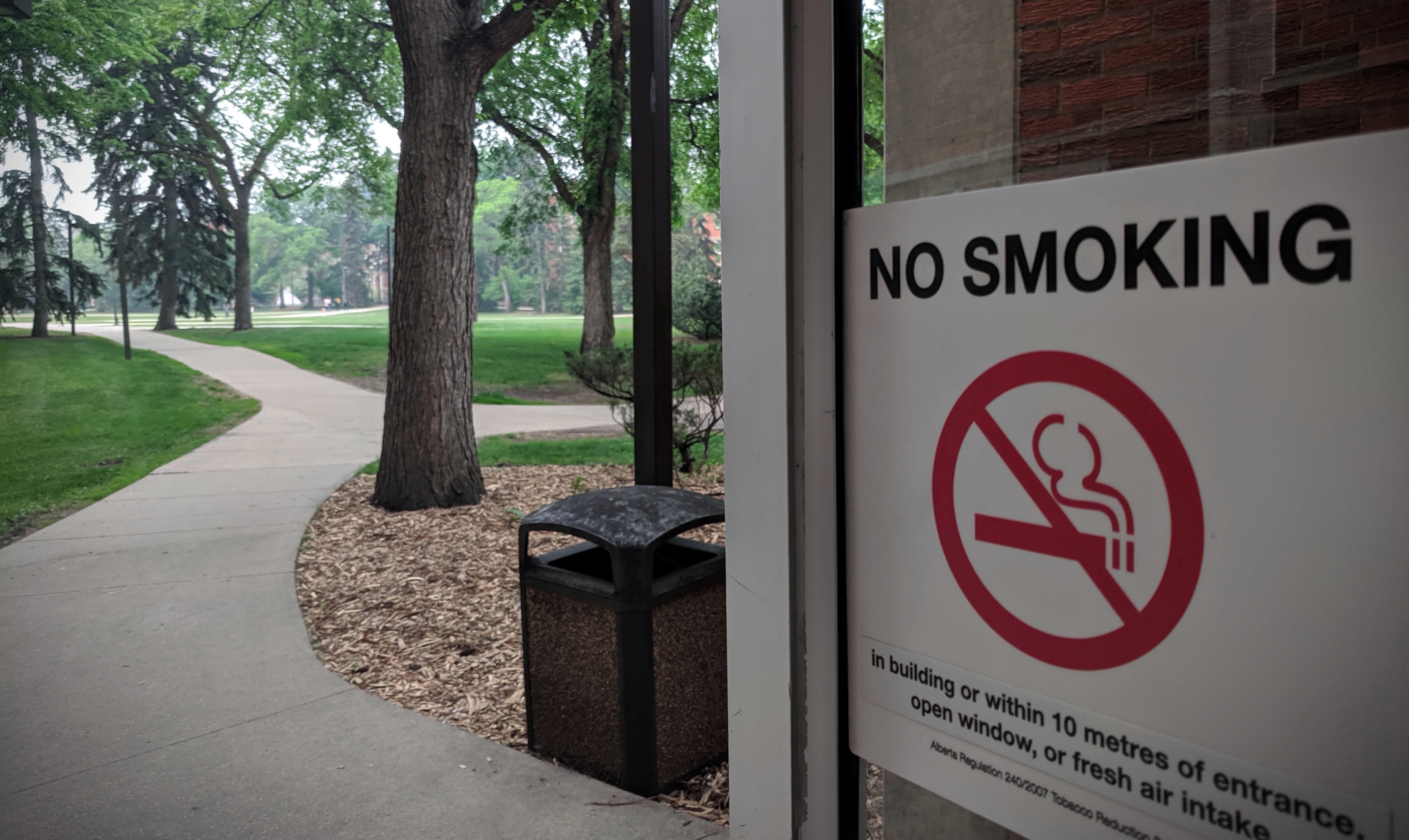
In the past few years, changing habits and regulations around tobacco, vaping, and cannabis have prompted new questions for cities and jurisdictions across Canada. We often say the U of A is like its own small city — and unsurprisingly, these same questions about tobacco and cannabis use have made their way onto our campuses. In 2018 the university’s General Faculties Council (GFC) formally asked administration to come up with a strategy to minimize student and staff exposure to smoke from cigarettes, vapes, cannabis and hookah pipes.
A working group, led by co-chairs Kevin Friese (Dean of Students’ Office) and Andrew Leitch (Risk Management Services), brought together representatives of GFC, the School of Public Health, residences, Human Resource Services, and First Peoples’ House. The group has identified a couple of options and is seeking feedback through a survey from members of the university community. The responses will be considered by the committee in its final recommendations.
The approach favoured by many colleges and universities across Canada and the US is to prohibit all forms of smoking and vaping on campus property. Among our peers in the U15 group of Canadian universities, four have declared themselves smoke and vape free: Queen’s, Western, McMaster and Dalhousie. This is an option the working group is considering.
Of the remaining members of the U15 group, about half have designated smoking and vaping zones, with the rest following policies similar to ours today, which prohibit smoking and vaping within a prescribed distance from doors, vents and windows. (Smoking and vaping cannabis is allowed in designated areas at Campus Saint-Jean, North campus, and Augustana). The designated smoking and vaping zone approach is also under consideration by the working group.
The working group is determined to develop a recommendation for General Faculties Council that our community is realistically able to adopt. Cleansing ceremonies, or smudging, are exempt from decisions around smoking and vaping.
In addition to community feedback, the working will group will consider factors like the Canadian post-secondary campuses who have successfully implemented smoke-free policies, the rise in youth vaping, the number of staff and students who self-identify as smokers and vapers, and healthy campus initiatives aimed at advancing the health and well-being of all members of the community.
What do you think? Share your feedback and complete the survey by February 21, 2020.Share your feedback and complete the survey by February 21, 2020.